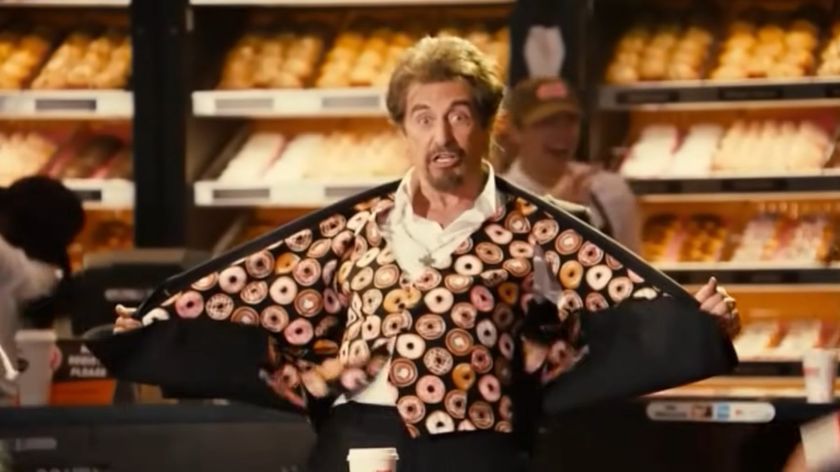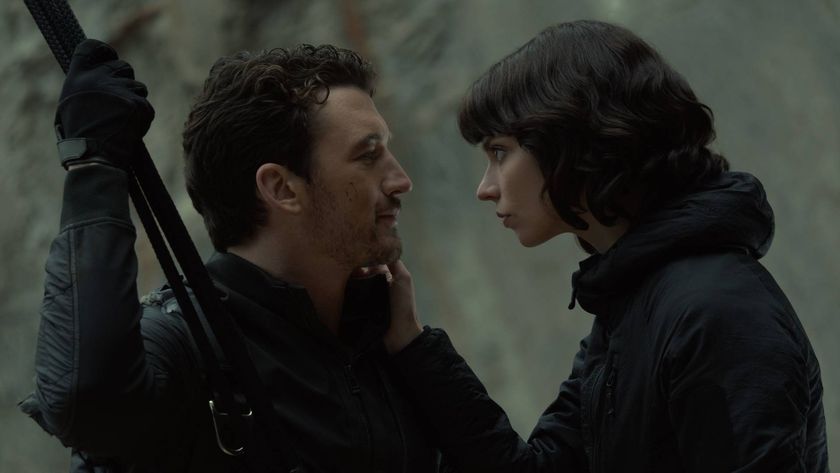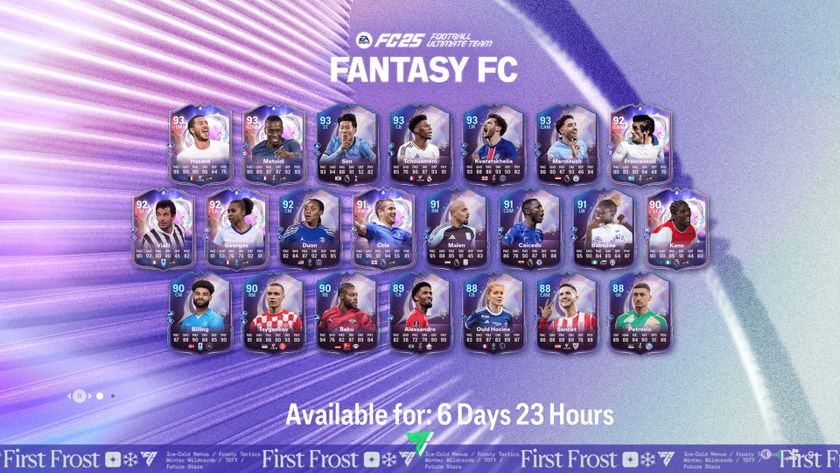Frank Marshall talks Jurassic World: Dominion, Indiana Jones 5, and Bee Gees
The Jurassic World producer talks to 12DOVE about his many upcoming movies – and why he wanted to make a documentary about the Bee Gees
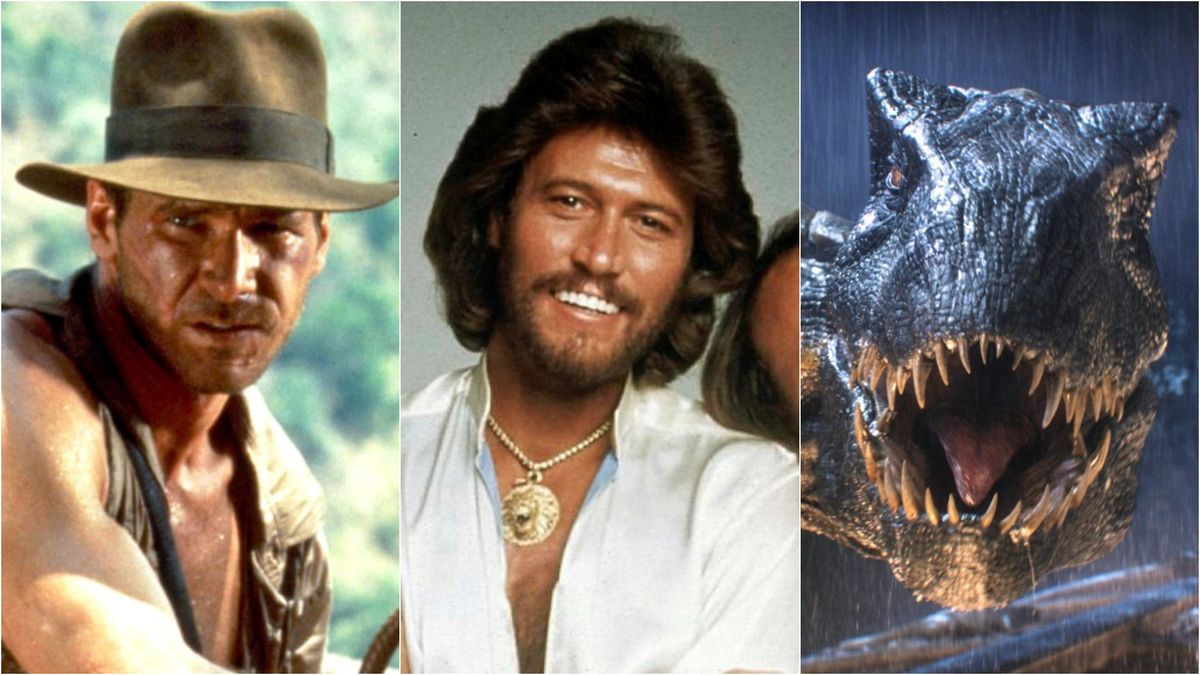
There are few iconic modern movies that haven't been touched, somehow, by Frank Marshall. Just a handful of his production credits: Raiders of the Lost Ark, Poltergeist, Back to the Future, Who Framed Roger Rabbit, The Sixth Sense, and The Bourne Identity. Marshall founded Amblin Entertainment with Steven Spielberg and Kathleen Kennedy (now head of LucasFilm and married to Marshall) and has, himself, directed a few movies, including the black-comedy Arachnophobia, Ethan Hawke-starring survival flick Alive, and an adaptation of Michael Crichton's Congo.
Next up, Marshall has helmed a documentary about the Bee Gees, titled How Can You Mend A Broken Heart. It's a wonderful look into the lives of three brothers who became international stars and then struggled with fame. Anyone with even a passing interest in their music will find lots to enjoy within this joyful, illuminating, and emotional movie.
12DOVE sat down with Marshall over Zoom to discuss the new documentary, plus we touched on the unprecedented filming of Jurassic World: Dominion – which took place in a COVID-secure way during lockdown – and the upcoming Indiana Jones 5. Here's our full Q&A, edited for clarity.
12DOVE: Hi Frank. How are you?
Marshall: I’m doing good, Jack. I’m getting to the end of my day, so my voice is, uh… I haven’t done one of these in at least eight months [laughs].
I really enjoyed the movie. I’ve always loved The Bee Gees, like yourself. Before you started making the doc, what was your biggest question about The Bee Gees that you wanted answers to?
It was really where the gift came from, and what it was like to work together as a family. I come from a musical family. My dad was a composer and guitar player and producer at Capitol Records. And I’m the oldest. I have two younger brothers. So I had a lot of things in common with Barry.
Sign up for the Total Film Newsletter
Bringing all the latest movie news, features, and reviews to your inbox
But it was really, how does that all work? I think as Barry says: if they weren’t brothers, they wouldn’t have lasted past the first breakup. It was really to explore that, and tell a family story.
I was expecting there to be more jealousy of Barry from the brothers, as Barry always seemed centre stage. I was surprised to see that not being the case. So I’m wondering, what was your biggest surprise, looking into the archives and speaking with Barry?
Well, the nice surprise was how they behaved like normal brothers. They were pulling jokes on each other all the time. I wish I could have had a little bit more of their humour in the movie, but it needs to be set up. They were competitive. But they grew up as siblings.
That moment that they went from boys to men – we all go through that with our brothers and sisters. There’s a competition. Then there isn’t. There’s jealousy. Then there isn’t. I think that was really an interesting part of this. And what a family unit they were – I mean, for all the brothers to end up in Miami together, with all their families? That picture where there’s about 50 [members of the family] in the living room is one of my favourites because it shows what a gift that was, to be such a loving family, and the creativity that came out of that.
But I discovered things, like going to the chateau [in France to record a new album], which, of course, I thought would be a great experience. But it was caused by [producer] Robert Stigwood wanting a tax break, and sending them there. It was really a dump. But they preserved, and they hunkered down, and look what happened: Saturday Night Fever.
So there were a lot of surprises along the way that are the great things that come out of making a doc, because you never know where you’re going to go.
Frankly, I completely forgot about The Bee Gees going through their original ballad Beatles phase. You just associate them with the falsetto and disco.
The falsetto came way late. You know, look at “Massachusetts”. Look at all of the songs before Miami. Some amazing ones.
Absolutely. In the documentary, you have the likes of Oasis songwriter Noel Gallagher and the Jonas brothers. I find it funny that the music of The Bee Gees can connect with a guy from Manchester, and people in New York, and around the world. What comment did you hear the most from people about what attracted them to The Bee Gees?
Well, the comment I heard most was surprise. You know, “They wrote that song? They wrote ‘Islands in the Stream’?” People still don’t believe it [laughs]. “They wrote ‘Guilty’? Really? Barbra Streisand didn’t write that?”
It’s all this impact they had on music – on pop music. They start their songs with a premise. They’re storytellers in an interesting way, and they get to your heart. They’re very emotional songs.
As Barry said – or somebody said – they come out of nowhere. I think it’s [Coldplay singer] Chris Martin who said there’s this magic in him that’s running everything, and songs just come to him. Well, I thought these things were all planned out, and they spent a lot of time, and they do research. And he said, “Well, I wrote that in 10 minutes.”
I said, “Don’t tell anybody that. They all want to believe that it was angst, it was this, you spend time, you changed this, you guys collaborated…”
No. They’re jamming in the studio, and he says to [keyboardist] Blue Weaver, “Do that thing that you did last night.”
And suddenly, there’s that ironic several bars of music that we all know in our heads. The creativity… the freedom that they had in their creativity – I just loved that. They write great hooks. The melodies are great. And then, of course, their harmonies – which, as Noel Gallagher says, you can’t buy that at a pop shop.
I saw Barry Gibb play Glastonbury. You get those occasional magic moments at Glastonbury, like when Dolly Parton’s playing, and everyone’s so connected. Barry was one of those artists who brought that.
Yeah, and I was so happy to be able to put that in the doc, at least in the end credits, Barry’s act. And that moment with everybody dancing? I mean, to see that sea of people, and to have him be appreciated like that? That was fantastic.
I’ve just realised, I’m technically in your film then. So that’s fun.
Yeah. You’re in it, Jack. We can put a little arrow in for the DVD release.
Please. You obviously have all these famous talking heads. Was there anyone you went for that couldn’t quite make it? Like the other Gallagher brother?
No. Justin Timberlake cancelled a bunch of stuff to talk. They all love The Bee Gees. They all wanted to talk. It was the opposite. Everybody stepped up. For a long time, I didn’t think I’d get Eric Clapton, which would be totally understandable. And then there he was. He was the last interview that we did. And who gets to interview Eric Clapton? I mean, one of my guitar heroes.
It’s a real pleasure talking to you Frank because you’ve been making movies for so long. You’ve worked with some of these incredible filmmakers along the way. Spielberg, Zemeckis, Shyamalan, all these people. What is a unifying thing that you see between these directors?
I think it’s their passion. They never settle. They’re passionate about telling stories. They’re perfectionists. But they’re storytellers. They have taken this medium and learned how to entertain. And it’s their passion that you see up there on the screen. And that’s what I fell in love with 50 years ago when I watched Peter Bogdanovich work.
But it wasn’t work. We weren’t working. I was 20, and I went, “Wow, I’ve finally discovered something that I love to do that I enjoy doing, that I seem to be OK at, and have some aptitude for. If I can do this for the rest of my life, that’d be great.”
And it turned out that I was very lucky. I was fortunate to be in the right place at the right time. But I think it’s really the passion. I mean, they’re passionate storytellers. They all do it differently. When you get your chance to put your vision up there, that’s a great thing. And they’re passionate about it.
Do you find yourself, when you’re directing, borrowing things they do? Like “This is the way that Spielberg would block a scene” or something like that?
Sure. It’s a constant learning experience, every day. I look at Alex Gibney now, and how he tells stories in docs, and I look at R.J. Cutler and his docs, and Morgan Neville. But I still look at what Steven does, and I look at what David Fincher does, and then I try to make it my own, and I apply it to the story that I’m trying to tell.
You’ve just finished producing Jurassic World: Dominion, which went through massive changes due to COVID. It was an unprecedented filmmaking process unlike anything that’s happened before. What was that experience like?
It really was completely unlike anything anybody has done before. Hopefully, we’ll never have to do it again. But one of the things about making movies is that you’re constantly challenged, or you’re constantly overcoming challenges – whether it’s with the budget or the location, you’re always moving forward. So the trick here was: how are we going to move forward and finish this movie? That was the challenge. And we’re all up to challenges. Fortunately, we were able to solve this one.
For me, the tricky part of it is, you know, we’ve become a family on the set, and everybody likes to help each other. It’s a different… [pause] you know, you can’t see somebody that’s telling a joke, because you’ve got this mask on. The interaction is really weird now when you’re working.
Some people – obviously, the actors – have to have their masks off. But all the rest of us, we can’t joke around as much. We can’t enjoy it as much. And certainly, you’re used to going and getting somebody’s chair if they need it. But you can’t, because you’ve then touched it, and broken the bubble, and someone’s yelling at you.
There are all these weird things to deal with that hopefully are going to be gone by next summer. Hopefully, we’ll be able to start shooting Indy at some point next year.
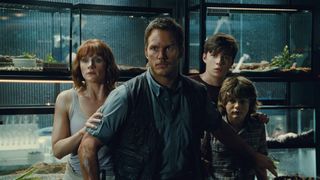
Were there scenes you had to change around, like a crowd scene you had to rewrite, to accommodate for COVID protocols?
Yeah, that happened on Jurassic. We were supposed to go to Malta with the main unit. And the week before, they had a surge there. Our second unit was already there. Colin [Trevorrow, director] is pretty fast on his feet, and he rewrote and rejigged a couple of sets with our crack production design unit.
And we reconfigured a big set that we have on the Bond stage at Pinewood [Studios] to keep telling the story. And then the second unit was there and actually shooting some wide establishing shots and transition pieces that Colin worked with Dan Bradley on – the second unit director. And so we made it work.
But again, it was being flexible and adapting, and meeting that challenge of how to keep going. I was supposed to go to Malta. From here to Malta. So I never made it over. That’s a thing I really regret. I love being on the set. I was not a happy camper.
Because you mentioned Indy 5. Is there anything you’re particularly excited about seeing in that movie? What is exciting about revisiting that franchise?
Well, it’s getting to work with Harrison again, for me. Raiders was really a special movie for me. It was my first sole producing credit, my first [Oscar] nomination. I met my wife – I probably should have started with that. You know, it was my first movie with Steven and George [Lucas, who wrote Radiers]. It was really, really a milestone for me.
But those relationships, we’ve kept over the years. Harrison’s still one of my best friends. I can’t wait to work with him again. We’re going to overcome [the COVID] challenge, and we’re going to be back next year sometime, and there’ll be another Indiana Jones.
Well, I can’t wait to see it in a cinema.
In a cinema!
The Bee Gees: How Can You Mend A Broken Heart is available now on Sky Documentaries, DVD and digital download.

Jack Shepherd is the former Senior Entertainment Editor of GamesRadar. Jack used to work at The Independent as a general culture writer before specializing in TV and film for the likes of GR+, Total Film, SFX, and others. You can now find Jack working as a freelance journalist and editor.
Most Popular





